L.A.’s Best Beef Noodle Soup, Since 1977
In Monterey Park, third-generation owner Denny Mu is keeping Mandarin Noodle House alive.
Photographs by David Gurzhiev
Every morning at 10:15 a.m., Denny Mu arrives at Mandarin Noodle House, a hut-shaped corner restaurant with a red-and-orange tiled exterior in Monterey Park, and gets to work making cucumber salad. He peels, smashes, and slices cucumbers into small, cragged pieces and pickles them with vinegar, sugar, and a lot of chopped garlic. Then, he sets up the dining room for daily service, which begins at 10:30 a.m. and ends at 9 p.m. Meanwhile, Mu’s cooks, most of whom have been with the restaurant for over three decades, prep the rest of the menu: they pull noodles by hand, slice scallions for pancakes, stew pig’s feet, and simmer pots of beef soup. Most days, Mu runs the restaurant on his own, from pre-opening to past closing. He estimates that on average, he serves 80 tickets a day and three diners per table, which means he’s talking to around 240 people over the course of 12 and a half hours. By 10:45 p.m., he closes up and heads home.
“It’s pretty demanding,” admits the third-generation, 38-year-old owner. But he’s used to the grind; he started working in the restaurant as a teenager and would do his homework in the back of the now-closed Northridge location, which was managed by his parents. When Mu was only seven years old, his father, Mu Deh Yi, was killed in a car crash, hit by a drunk driver on his way home from work. “I’m still finishing what he started,” says Mu. His mother, Joannie Lin, still works in the restaurant on his days off. “We’re a mom-and-pop shop through and through. We’re not shadow owners, family is always in the restaurant.”
Mandarin Noodle House, also known as Mandarin Deli, was founded by Mu’s grandfather, Lin Yu Tang, in 1977. It was established in Chinatown’s Far East Plaza—home to Howlin’ Ray’s, Lasita, and Now Serving today—where Tang would hand-pull noodles in the window for passersby to see. Tang was born and rasised in Shandong, northern China, then moved to Taiwan, had a family, and immigrated to Los Angeles with everyone in tow. “My parents and all of my aunts and uncles were going to UCLA for nursing or engineering, then my grandfather came up with the wild idea to start a restaurant, and they all gave up their college lives,” Mu says. They specialized in Taiwanese cuisine—most notably redolent bowls of beef noodle soup with hand-pulled noodles, punchy cucumber salad, and juicy pan-fried dumplings—with a bit of Korean and Japanese influence. For example, they serve jajangmyeon, the Korean-Chinese fusion dish of noodles with black bean sauce. Shandong is mainly known for soups, wheat, and garlic, “so those are our forte,” says Mu.
“We’re a mom-and-pop shop through and through. We’re not shadow owners, family is always in the restaurant.”
And they grew swiftly, opening a second location in the San Gabriel Valley’s Monterey Park, followed by Northridge in the San Fernando Valley, Little Tokyo, and Temple City. Yet as Mu’s grandfather got older and his cousins became adults, his aunts and uncles started to retire, closing up shop after shop. The family still owns the Northridge location, which they rent out to Northern Cafe, but otherwise, only Monterey Park remains—as one of the oldest restaurants in the San Gabriel Valley city.
“I’m the black sheep of the family,” says Mu. “I’m still willing to keep the restaurant going.” He left L.A. briefly to go to college in Houston, Texas, and worked as a salesman for T-Mobile for several years, but ultimately came back to the restaurant. His only sibling, a brother who is one year younger, found a career as a mortgage underwriter. “I’m not book smart,” says Mu, “but I was blessed with the gift of the gab. I compliment everybody, which is something that AI cannot do.”
It’s a gift that’s been rewarding for Mu, and fruitful, too. Mandarin Noodle House has decades-old customers who have been eating at the restaurant since they were kids, and who now come in with their own children. “And grandma and grandpa are still around,” Mu says. “It’s a sight to see. One of the reasons I love doing what I do is to see the food passed down from generation to generation.” He met his fiancée through the restaurant, a customer of 33 years, whose mother shared her number with Mu’s mother and told him to pursue her. “Being in the restaurant, there’s no time for dating, so I got very, very lucky meeting my lady here,” he says. The couple is expecting their first child in July.
Before the pandemic, Mandarin Noodle House saw a sizable weekday lunch rush in Monterey Park, but these days, the most crowded time in the dining room is between 6 and 8 p.m. During weekends, the restaurant hums with chatter all day. On a recent Wednesday afternoon at 3 p.m., there were only three customers: a pair of Spanish-speaking, middle-aged women finishing their meal of pork chops over rice and a young doctor in scrubs, hunched over a steaming bowl of beef noodle soup. The two women put down their credit cards to pay, and Mu informed them that Mandarin Noodle House only accepts cash. As they stumbled over what to do, the doctor waved Mu over and whispered, “Don’t worry, I got them.” “Happy New Year,” he said to his fellow diners as he grabbed their check along with his own, placing down a crisp 100-dollar bill. Tears welled up in one of the women’s eyes as the duo expressed their gratitude, and the doctor waved them off. “It’s my good deed to you,” he said.
It could’ve seemed like a serendipitous encounter while a reporter was in the room, except that another affectionate interaction with regulars occurred mere minutes after the two friends left. A couple, probably a few years younger than Mu, walked in, greeted the owner, and began to ask questions about the beef noodle soup, comparing it to a Caribbean soup they make at home. “It’s a big pregnancy craving for her,” said one of them, gesturing to his wife. “And yours is the best.”
Mu told him they make a soy sauce base with star anise, sugar, and a lot of garlic, plus chiles, some MSG, and Chinese five spice, and that they marinate beef shank for a considerable amount of time, every other day. The man asked Mu if he could teach them how to make it, and Mu welcomed them to come in one morning to see it in action. “With that being said, I’m assuming two beef noodle soups?” he asked, and the couple laughed, nodding.
Later, Mu told me that what makes his family’s beef noodle soup so good is its simplicity: “A lot of restaurants like to overdo their beef noodle soup. They add the bok choy, they add the sour cabbage, and then they add the chili oil directly into the soup, and I’m like, ‘why?’ I always think less is more. I just want to give you the heart and soul, I don’t want to give you the filler.” He says they have customers who travel frequently to Taiwan and still find the soup at Mandarin Noodle House to be superior to the versions they’ve enjoyed there. “Forget Din Tai Fung, they go to the homeland,” he jokes. “But that’s to each their own. I’m not gonna say ours is the best, but I think it is. I’ve been eating it at least three to four days a week for 38 years.”
“A lot of restaurants like to overdo their beef noodle soup. They add the bok choy, they add the sour cabbage, and then they add the chili oil directly into the soup, and I’m like, ‘why?’ I always think less is more. I just want to give you the heart and soul, I don’t want to give you the filler.”
With only six months left before he embarks on fatherhood, Mu has been thinking about what it means for a fourth generation of Mandarin Noodle House to be on the way. His own childhood was spent in the restaurant instead of hanging out with friends and going to birthday parties, and he’s come to terms with that. “In Chinese, we always say, ‘first bitter, then sweet,’ so I feel like it was a sacrifice that needed to be made to have success in my future, and here I am,” he says. He understands the mentality of many restaurant-owning immigrants who want their kids to go to school and get white-collar jobs instead of working strenuous days in the restaurant. Still, he also wants his child to experience Mandarin Noodle House and to understand how making a living is not so easy.
“We’re not greedy. We’re not looking to try and buy mansions. We just want to be able to afford a simple lifestyle and raise our children,” Mu says. “Young people don’t want to carry on the family legacy, but I’m more than willing to.”



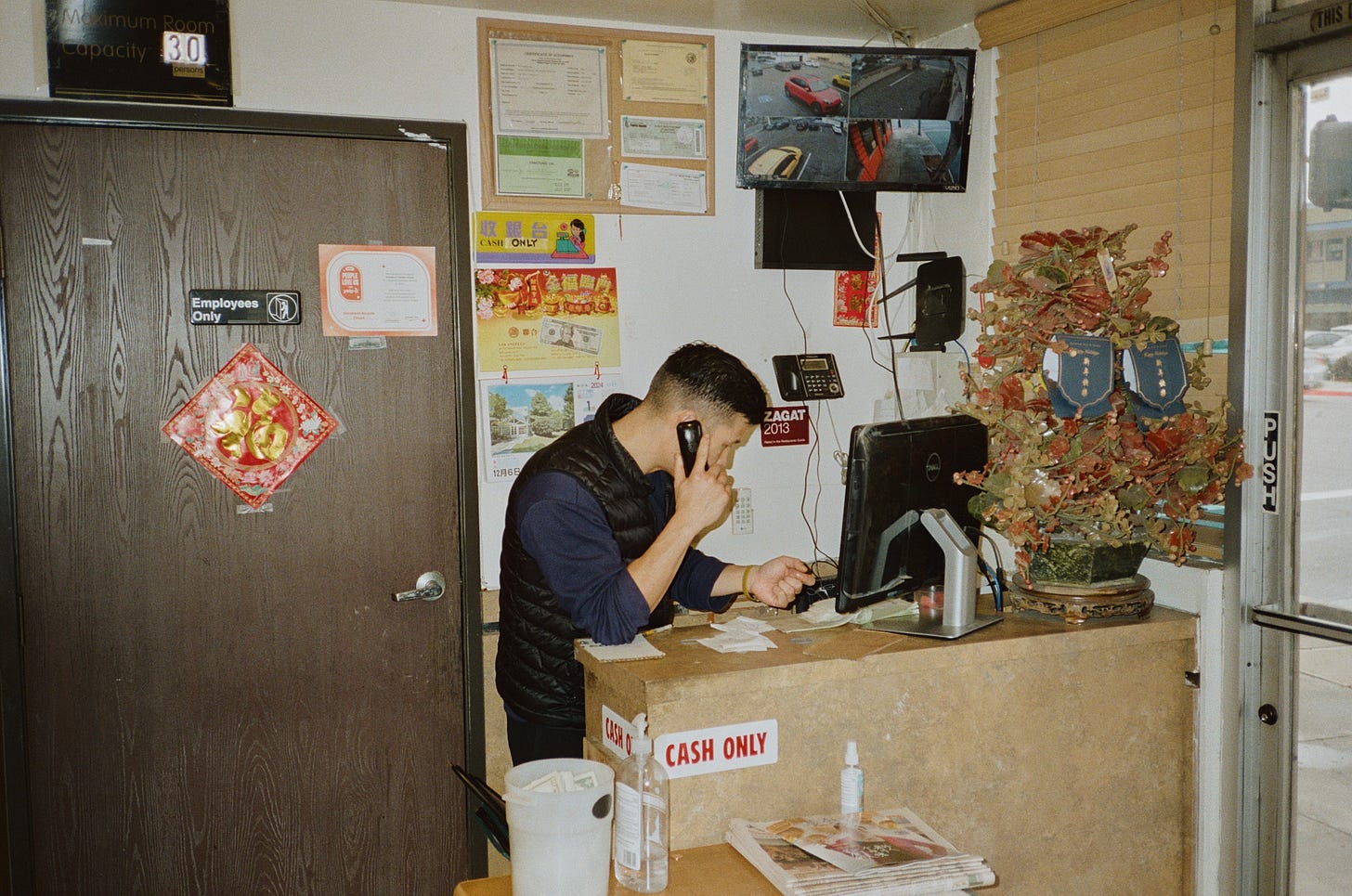
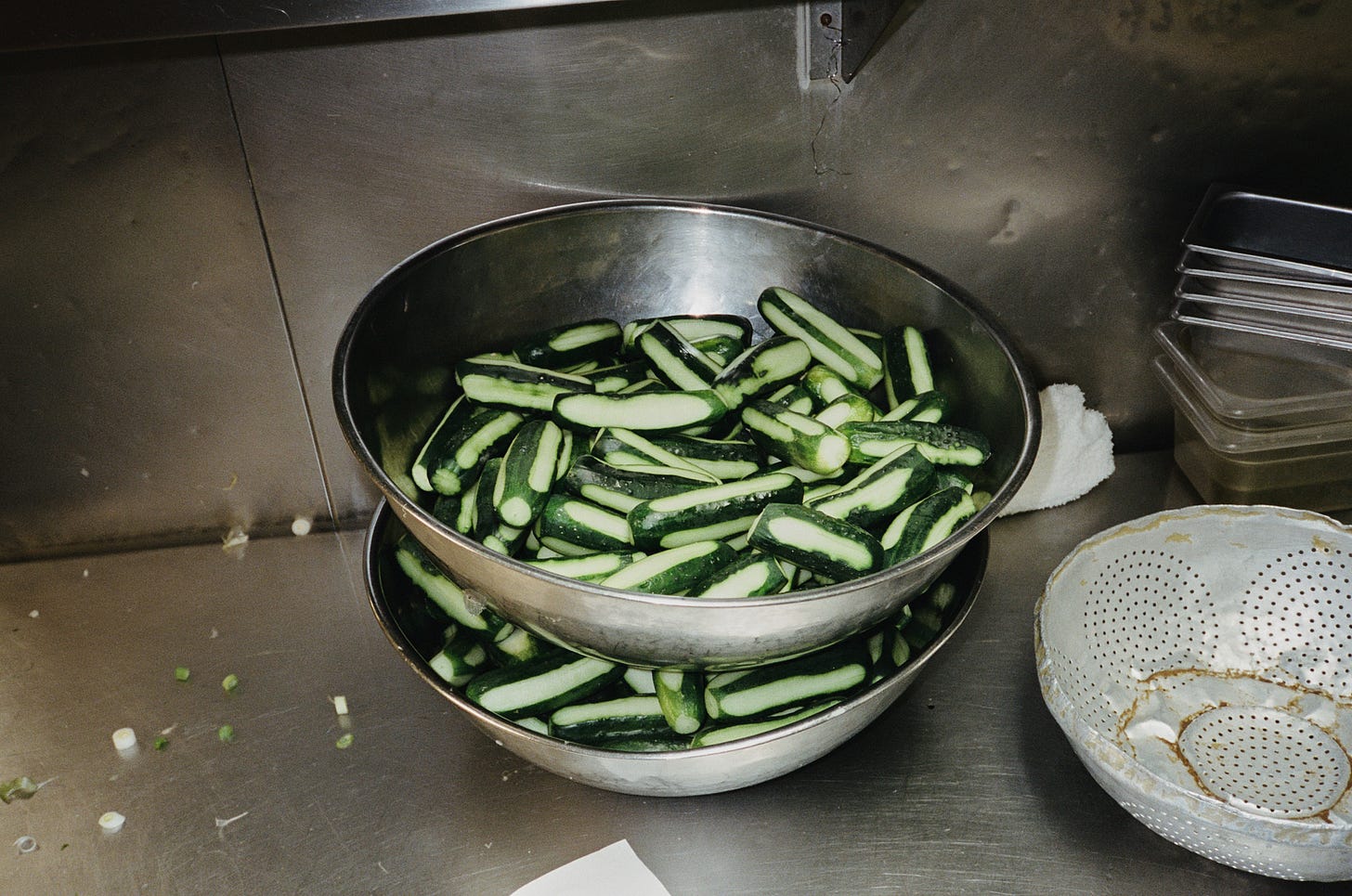
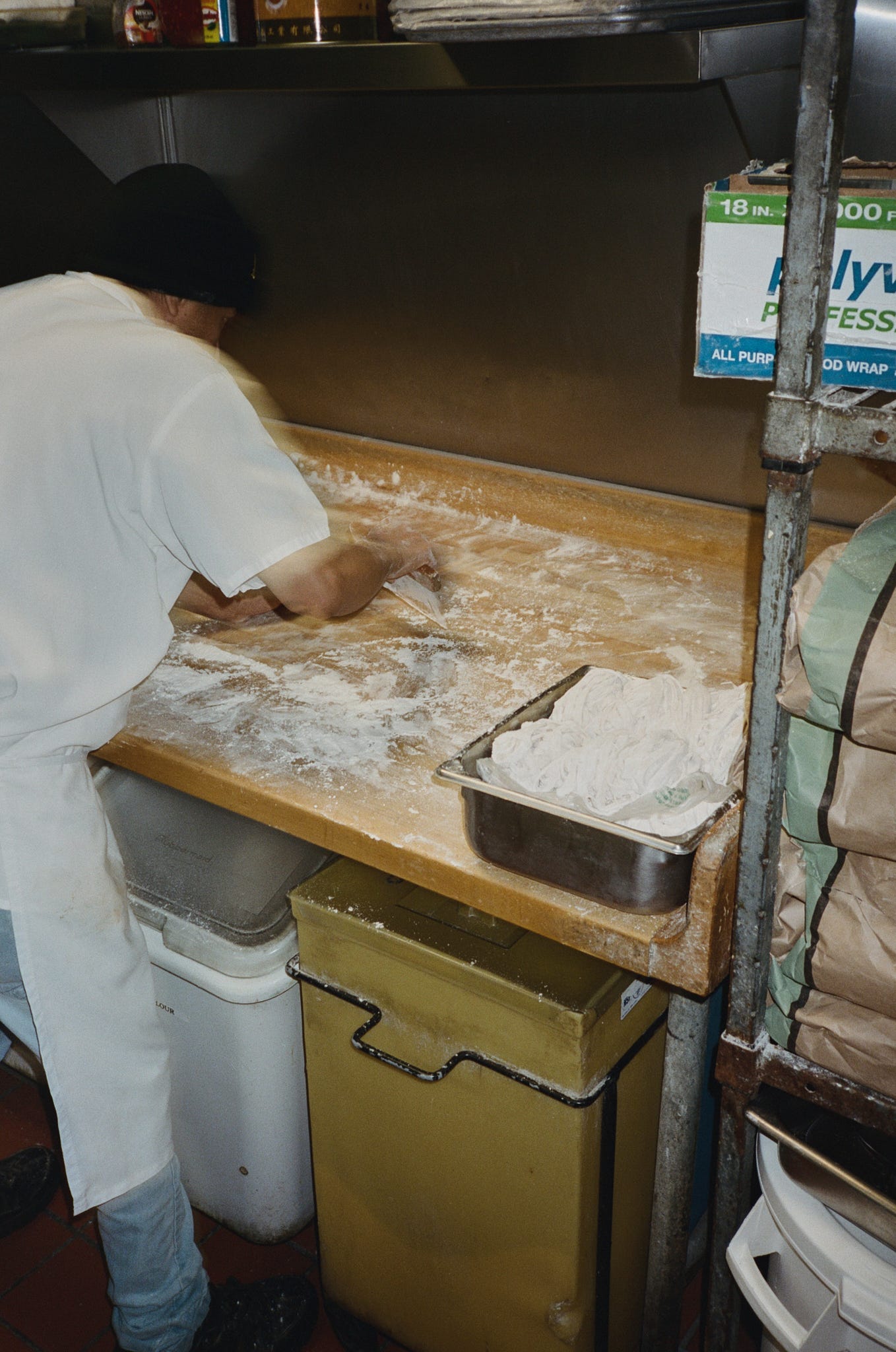
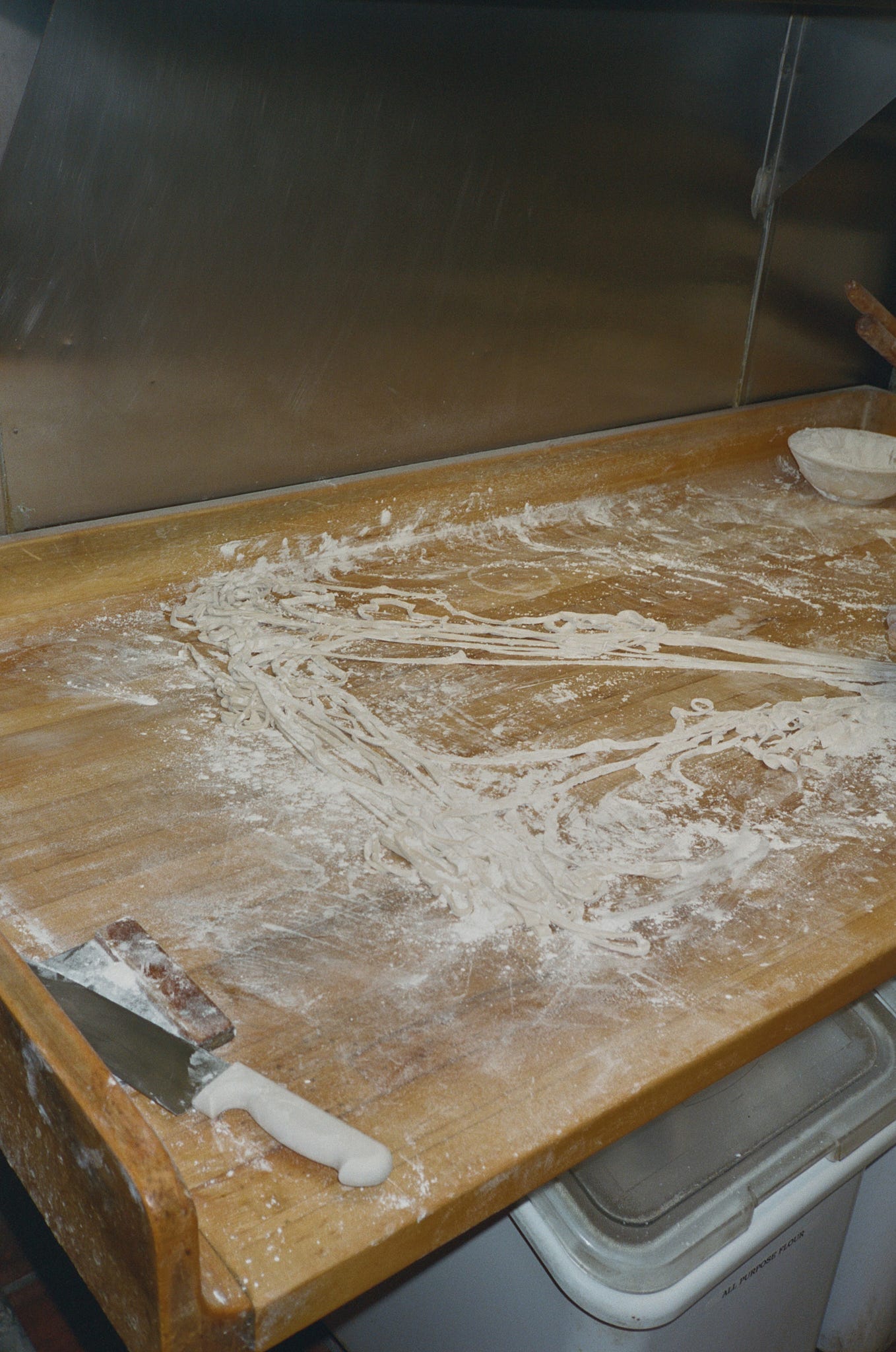

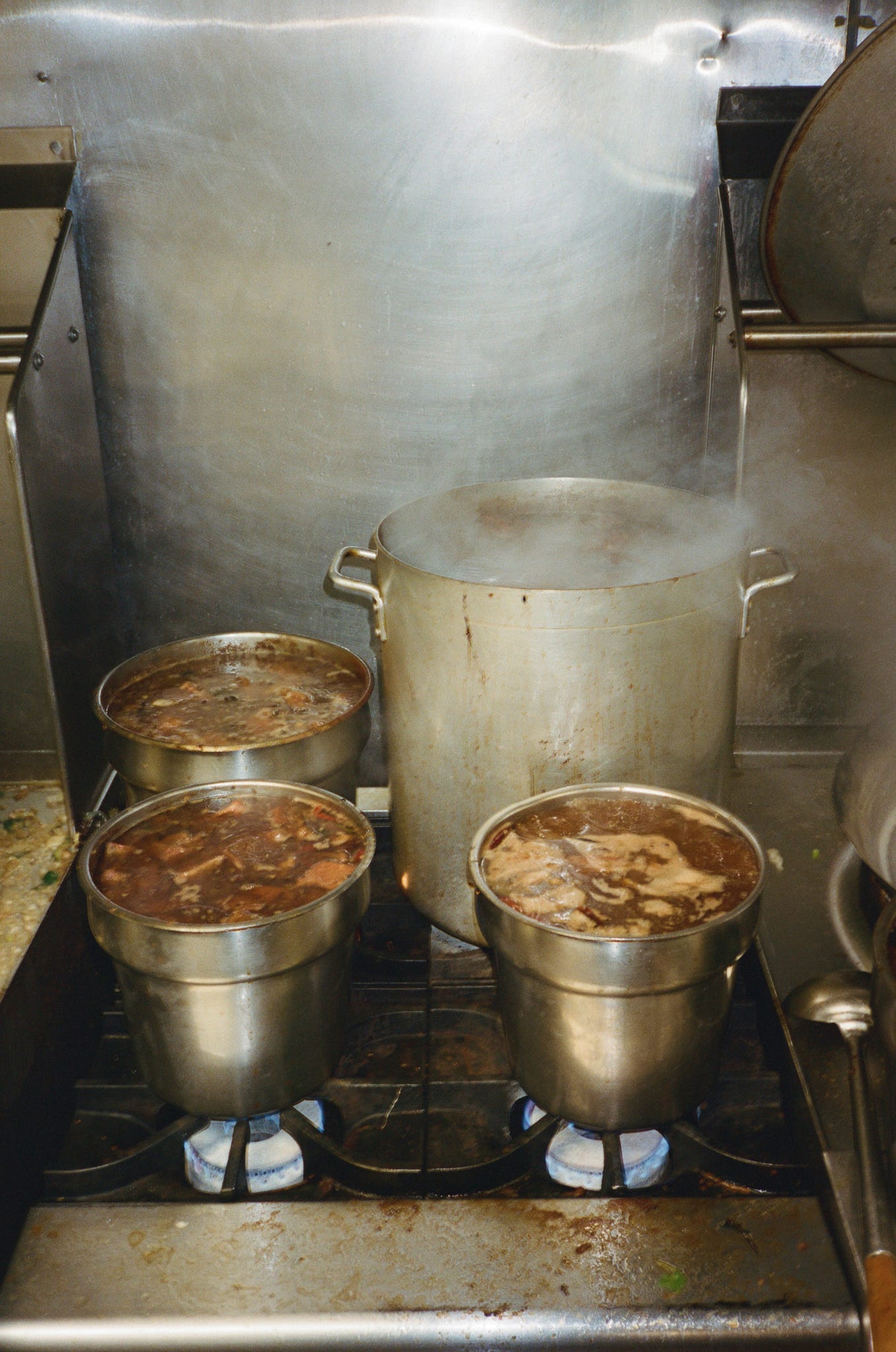
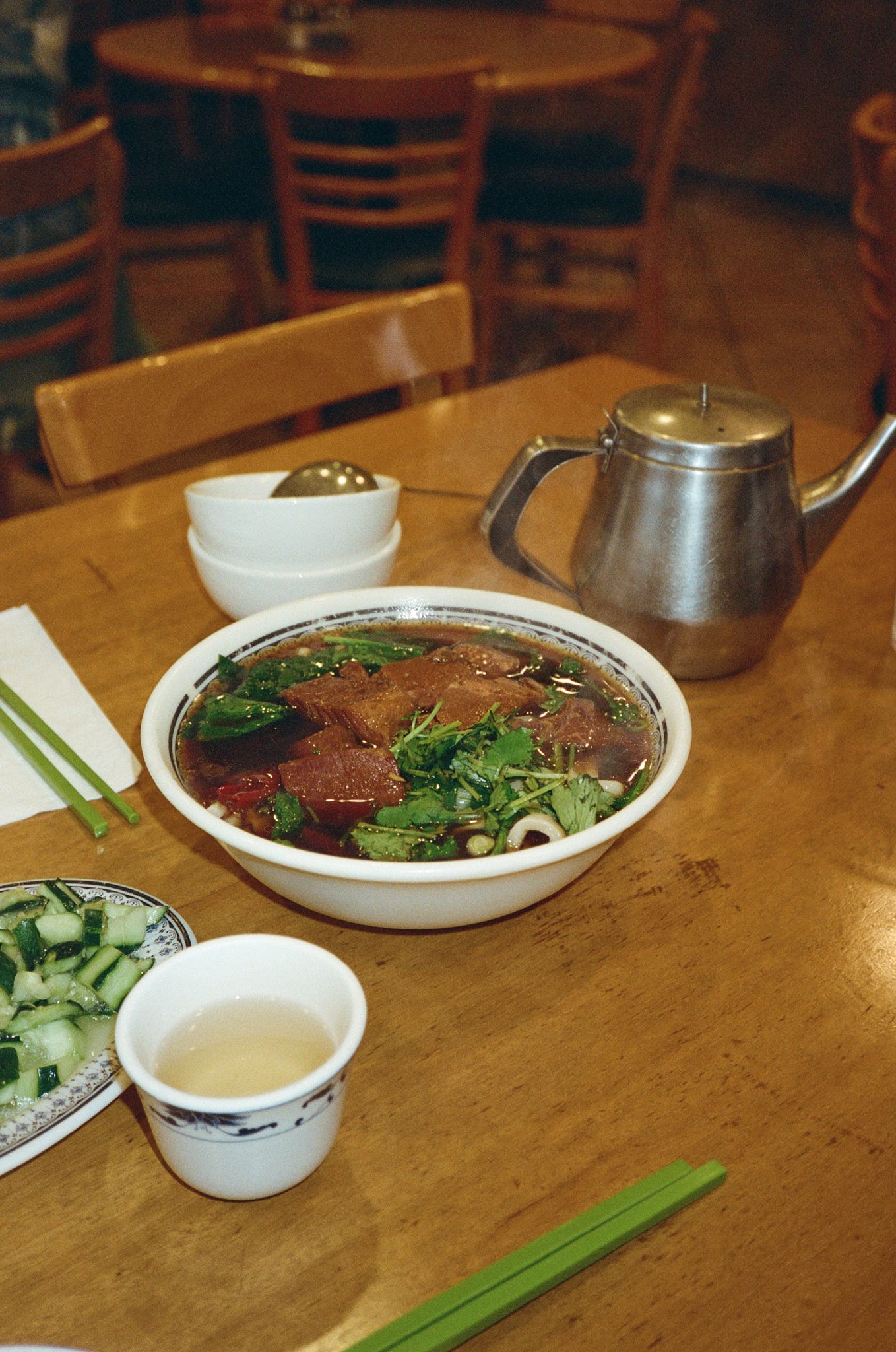
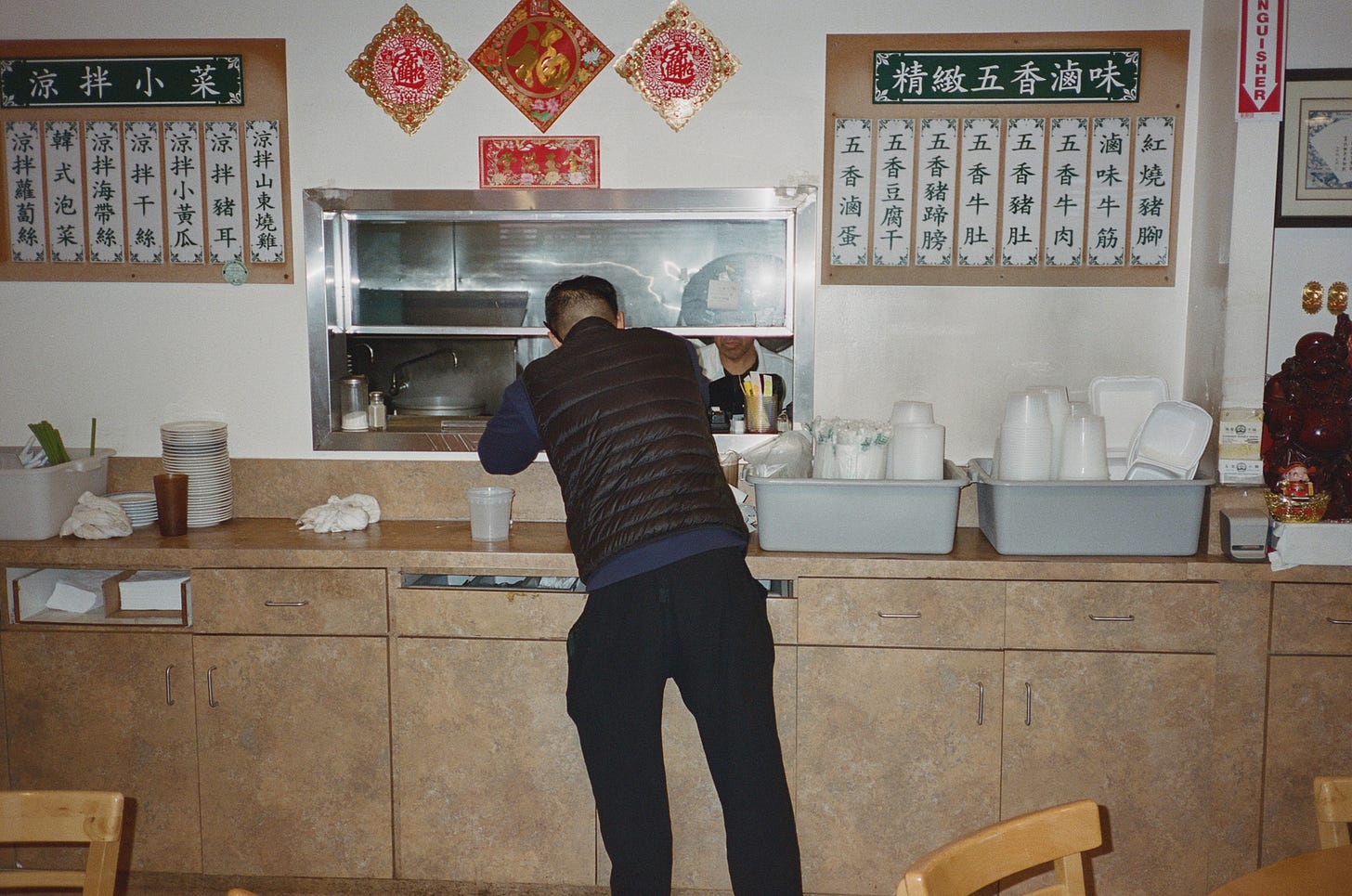

So into your sub stack!! Just discovered it , it’s incredible …. Keep on writing please !!
Honestly your newsletter makes me want to learn how to drive more than anything else